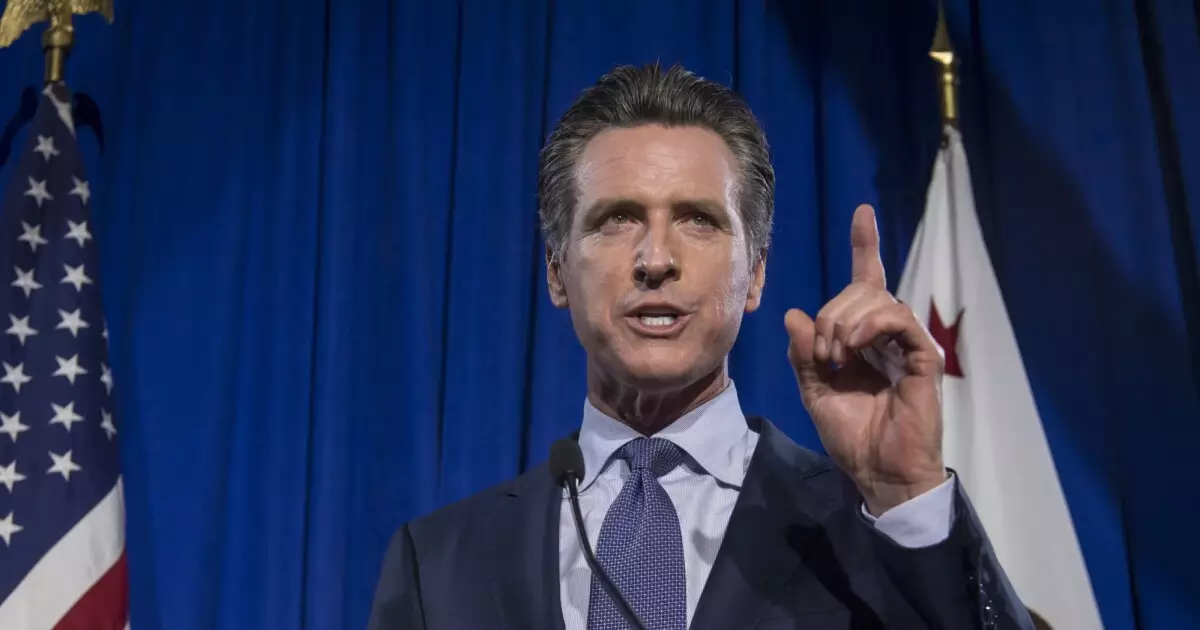In a critical move advocating for California’s public education system, the California School Boards Association (CSBA) has filed a lawsuit against the state, taking issue with a trailer bill that alters funding mechanisms established by Proposition 98. This proposition, which has governed educational budget allocations since its passage, mandates that a specific percentage of the state’s budget be dedicated to education annually. With the recent adoption of the 2024 Education Omnibus Budget Trailer Bill in July, serious concerns have arisen regarding its constitutionality, spurring legal action that aims to protect existing funding structures.
Proposition 98 was designed to ensure a stable and reliable flow of funding into California’s schools and community colleges. The trailer bill, however, has been accused of undermining these constitutional safeguards by introducing funding methods that could jeopardize these financial guarantees. The CSBA’s lawsuit centers on the assertion that Governor Gavin Newsom’s budget proposal has detrimentally diverted funds from what is typically required under Proposition 98, thus inviting legal scrutiny and potential redress.
The CSBA’s challenge is rooted in a belief that the recent modifications to funding appropriations not only violate the law but also threaten the fiscal health of California’s educational institutions. CSBA President Albert Gonzalez has articulated a clear stance against the decision by the Department of Finance to borrow from the state’s general fund as a means to remedy budget shortfalls. He argues that circumventing established constitutional mandates for the sake of convenience undermines the intent of the voters who ratified Proposition 98.
Furthermore, this legal dispute highlights a broader concern: when state leaders manipulate budgetary frameworks to address shortfalls, the long-term implications for funding stability become increasingly uncertain. The subversion of Proposition 98 provisions raises alarms about the future of educational financial support, particularly in times of economic hardship.
While the CSBA has mobilized to take legal action, state officials have consistently defended the constitutionality of the changes. The California Department of Finance has responded to the CSBA’s claims by asserting that their interpretation of the state’s budgetary obligations regarding Proposition 98 is both accurate and legally sound. H.D. Palmer, a spokesman for the Department of Finance, expressed confidence that the court would ultimately uphold their position, emphasizing a belief in the validity of their budgetary practices.
However, the disagreement illustrates the ongoing tension between educational advocates seeking to uphold strict funding guarantees and governmental bodies attempting to adapt and manage fiscal crises pragmatically. With competing narratives surrounding the budget and funding regulations, transparency in the budget process has emerged as a significant point of contention.
The lawsuit’s implications extend beyond immediate funding concerns. By challenging the trailer bill, the CSBA seeks to preserve the foundational framework established by Proposition 98, which has provided crucial support to educational institutions for over thirty years. Critics worry that altering the mechanisms of this proposition sets a concerning precedent, opening avenues for future manipulations that could further erode funding guarantees essential for student success.
The core of the CSBA’s argument is that the alterations within the trailer bill could allow for a systematic decrease in educational funding—particularly in instances following economic downturns when schools need resources the most. The concern reinforces the argument that California has a vested interest in maintaining robust funding channels, especially during periods of fiscal uncertainty, which historically have been managed without diverting from Proposition 98’s guidelines.
As the legal battle unfolds, its outcome will be pivotal for the future of public education financing in California. An adverse ruling for the CSBA could leave the door open for a range of funding adjustments that potentially detract from educational resources, affecting students’ academic achievements and overall well-being.
Conversely, a successful challenge could reestablish the constitutional protections that voters intended when they passed Proposition 98. It would send a powerful message about the need for state leaders to adhere to the foundational principles of public education funding, reaffirming the importance of stability amidst a shifting fiscal landscape.
The struggle surrounding the trailer bill and Proposition 98 encapsulates broader themes of governance, accountability, and the essential role of education in society. As stakeholders watch the developments closely, the outcome of this lawsuit will likely have lasting ramifications for the state’s educational infrastructure and its commitment to future generations.

